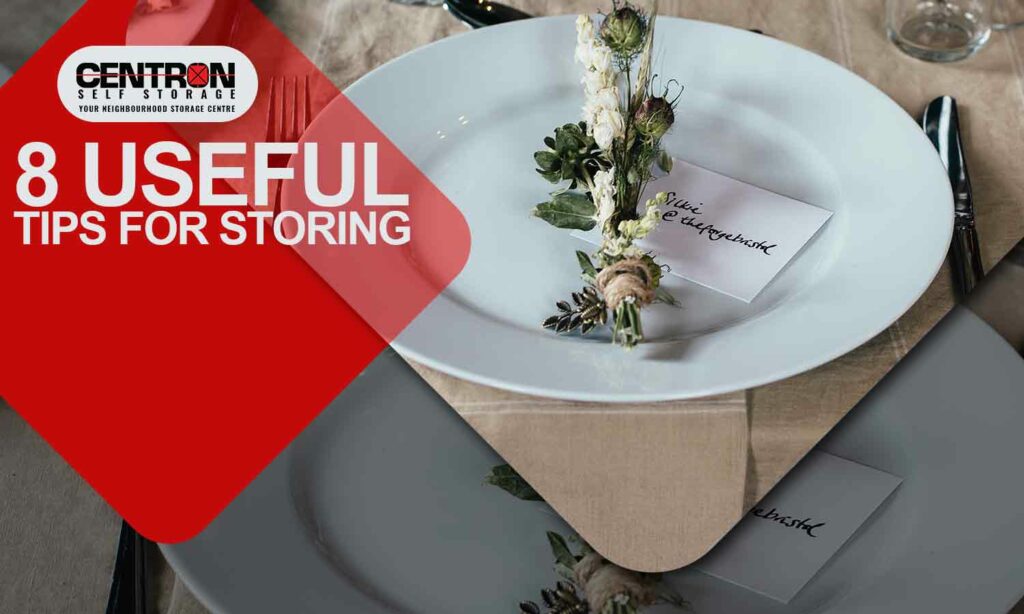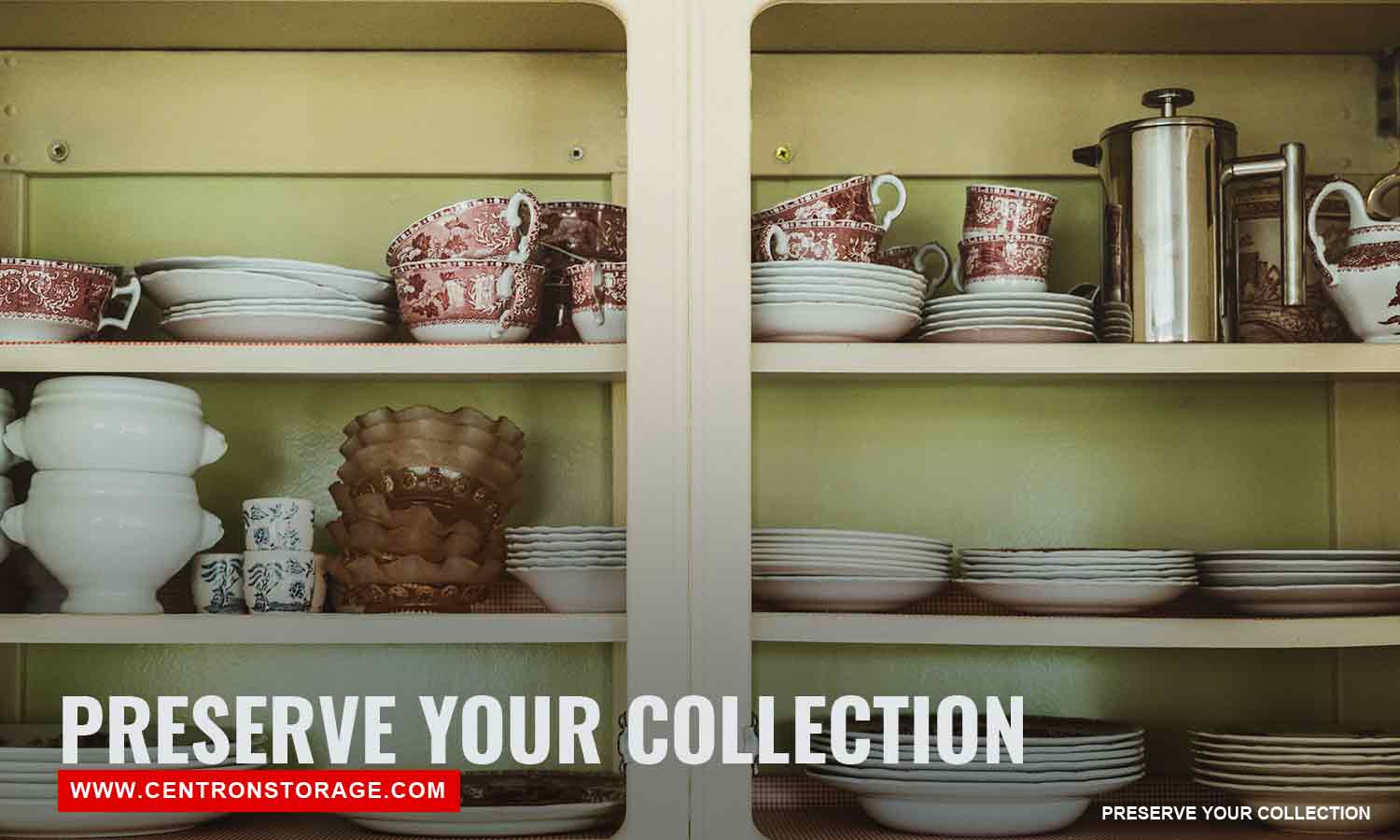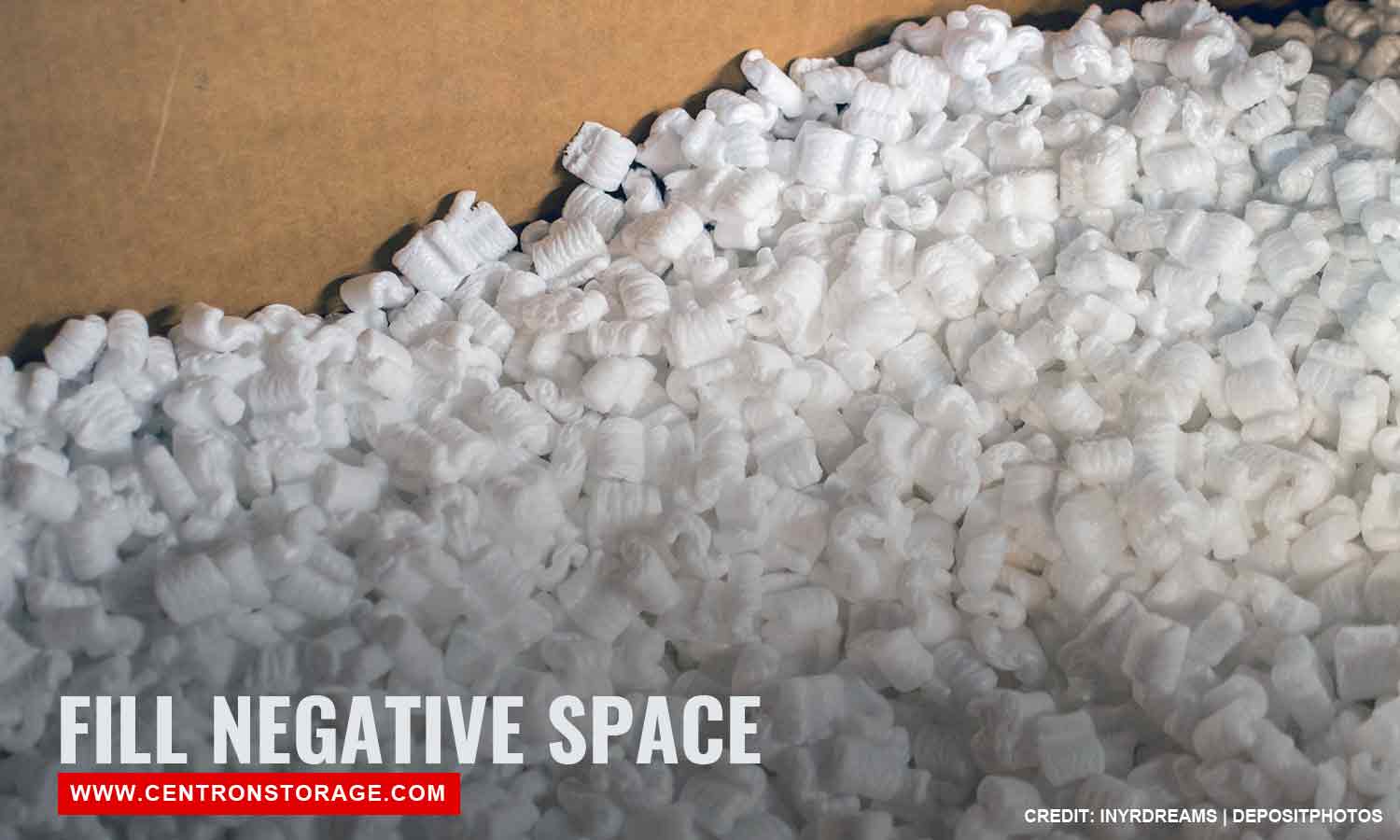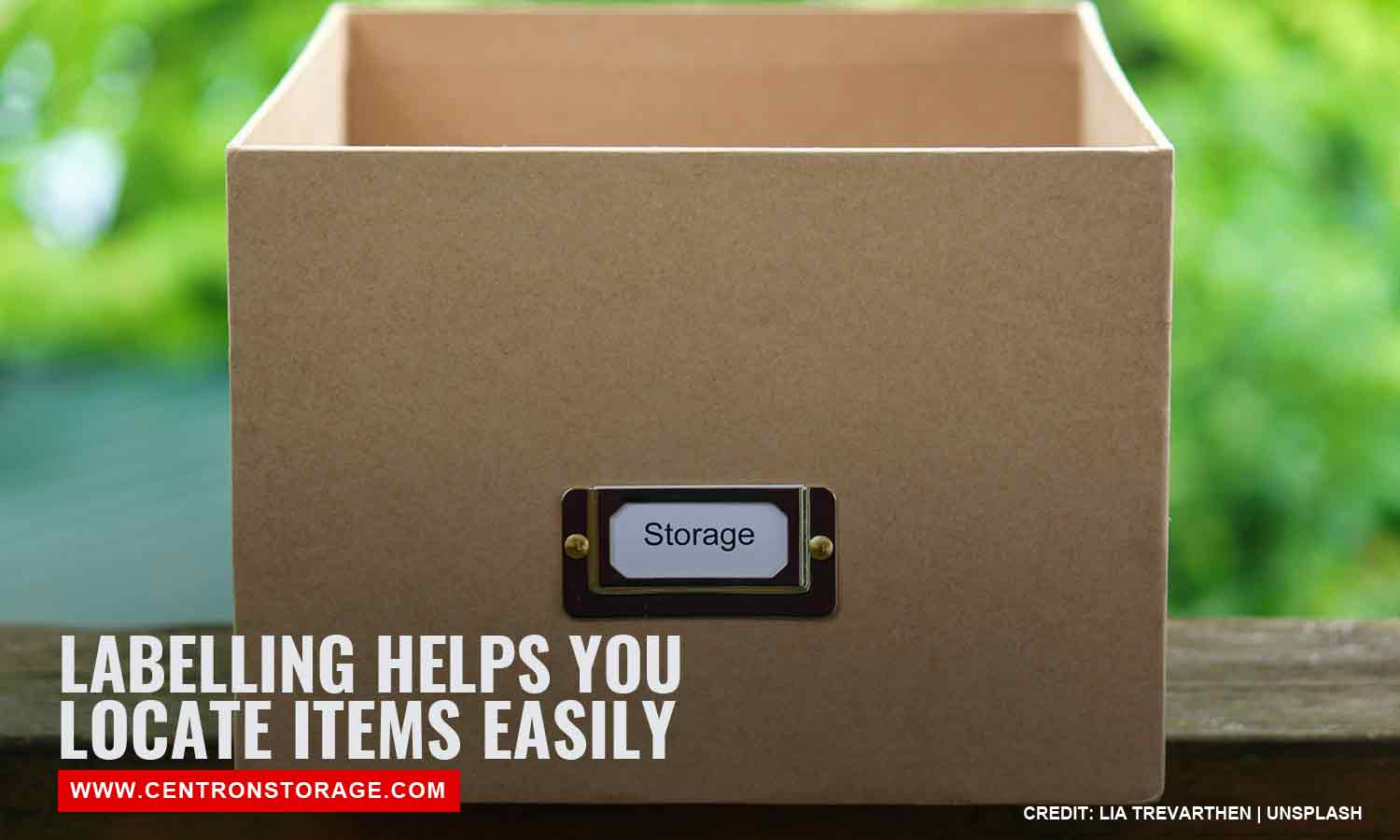8 Useful Tips for Storing Glassware and Chinaware

When it comes to storing your belongings, you know that some items break easier than others — glassware and chinaware, for example. In addition to being extremely fragile, these items can be quite expensive, specifically fine china and wine glasses.
You can’t just stuff china and glass in a box somewhere and call it a day; they require a more delicate approach to both handling and storing. If you want to properly preserve these valuable objects, you can benefit from learning some of the best ways to store glassware and chinaware.

Chinaware is made of a fine white or translucent vitrified ceramic material. It takes its name from China, the country where it was originally created over 11,000 years ago. It comes in the following varieties:
- China
- Porcelain
- Bone china
- Ceramics
- Earthenware
- Stoneware
Closely associated with fine dining, chinaware is often reserved for special occasions, while some are used purely for decorative purposes. Because of this, households with a set (or two) of china keep them in storage nearly the whole year round.
Glassware, on the other hand, is considered a cheaper alternative to ceramics. These are easier to make and come in a variety of stylish designs that make them extremely popular among the public. However, they are equally fragile and need the same amount of tender loving care.
How to Care for Glassware and Chinaware in Storage
Similar to storing antiques, proper chinaware and glassware storage is essential if you want to protect them from physical damage and prevent deterioration. By following these simple tips, you will be able to keep your fragile dinnerware pieces in good condition, even if you’re storing them in the long term
Decide what to keep and what to store

Before you start putting your chinaware and glassware into their respective storage containers, the first thing you should do is ascertain how frequently you use them.
Frequently used tableware should be stored neatly in cupboards and kitchen cabinets for easy access. A more elegant option would be to use a display cabinet which allows you to show off your collection and add vibrance and style to the dining room.
For those that you only use on special occasions and events, store them in a safe place in the attic or basement. Alternatively, you can turn to a reliable storage centre for safekeeping.
Wrap them individually

Even when inside a storage container, glassware and chinaware are still at risk of physical damage when handling. Pieces are likely to bump into the sides of the containers or each other when you move the box from one place to another and acquire damage including:
- Scratches on the surface of plates and sides of the wine glasses
- Chips on the rims of the drinking glasses and the edges of the plates
- Hairline cracks on the sides of glassware
Wrapping glassware and chinaware individually will keep this from happening. That also means that pieces, such as teapots and serving bowls, should be wrapped separately from their lids. Additionally, you should fill the insides of glasses with wrapping material to prevent breakage.
When choosing wrapping material, opt for the variety that can provide adequate protection, like:
- Bubblewrap – This provides the best protection due to it’s cushioning properties which makes it perfect for fine china and expensive glassware.
- Paper towels – These provide excellent cushioning.
- Standard wrapping paper – This is a great all overall solution and is easily available.
A word of caution: under any circumstances, do not use newspapers as substitutes for wrapping materials. The ink on these publications can leave stains which are next to impossible to remove without causing additional damage.
Use cardboard dividers — they’re your friends!
Another great way to keep your drinking glasses and china cups secure inside a container is to use cardboard dividers. These serve as partitions to separate and protect boxed items during storage or shipping.
Cell dividers are the most popular type of cardboard dividers and can be easily obtained at your local supermarket or online. They also work together with wrapping paper or bubble wrap, further enhancing the protective layer around your fragile tableware.
Make sure the box is fully secure

Even with wrappings and dividers in place, there’s still a high likelihood of your chinaware and glassware moving around because of the negative space between the divider and items. Before you seel the container, fill up these vacant areas to keep movement to a minimum, securing your items.
Effective filler options include:
- Packing peanuts
- Cushion foam
- Packing paper
- Bubble wrap
Opt for smaller plastic storage bins for heavier objects
It’s a standard storage practice to keep heavy items in smaller packages. Despite its fragile nature, china can be quite heavy.
Plastic storage bins are great chinaware storage containers, particularly if you have the wrapping in place. They’re considerably more durable than cardboard and highly resistant to most contaminants, such as dust and dirt.
Label your boxes

Unless you have x-ray vision, you’ll never find out what’s inside a box without opening it. Labelling your cardboard and plastic containers will is a great solution for this dilemma.
Not only does labelling help you find your chinaware and glassware faster, it also serves as a reminder to handle the boxes with care.
Avoid stacking boxes on top of each other
One common glassware storage container that people use are cardboard boxes. While there’s nothing wrong with that, people tend to stack these boxes on top of each other. Doing so places a significant amount of pressure on the items at the bottom. If fragile tableware ends up at the bottom of a pile, they can cave under the load and break.
If you want your chinaware and glassware to stay in one piece, do not use cardboard boxes to store them in and place them at the top.
Store in an area with consistent temperature
Constant shifts in temperature can be harmful to your china and glass items. Storing them in areas with extreme temperatures and humidity will cause them to crack.
Always take the temperature of the storage area into consideration when storing glassware and chinaware.
When packing and storing delicate dinnerware, it is important to take your time and go through each step carefully. By following proper storage methods, you’ll be able to reduce the risk of damaging them and ensuring that you can still use them the next time you have a special event.
If you’re looking for an excellent storage solution for your glassware and chinaware in the North York area, contact Centron Self Storage at (647) 749-1396. We offer great deals and will be happy to provide you the best service possible.
